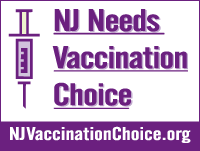Are Flu Shots Effective at Preventing Illness?

In December, the Centers for Disease Control and Prevention (CDC) launched a public health campaign in the U.S. encouraging vulnerable patients - particularly the elderly - to "protect yourself and the ones you love against flu: GET VACCINATED!" At least one flu-vaccine researcher disagreed with the message: Tom Jefferson, an epidemiologist with the prestigious Cochrane Collaboration, which has headquarters in Britain.
Jefferson and colleagues have published several systematic reviews of existing studies on the efficacy of influenza vaccines. Weighing the data, they conclude that there is insufficient evidence to indicate that flu vaccines reduce infection rates or mortality, even in the elderly. Jefferson, a former British army doctor now based in Rome, spoke with TIME about his quest to spur further research into flu vaccines. (See TIME's special report on how to live to 100.)
On Feb. 16, the Cochrane Library published your updated review of all major studies on the efficacy of flu vaccines for the elderly, some of the results of which you believe to be preposterous. Can you explain?
We looked at studies on vaccines in the elderly and in health care workers who work with the elderly, and we found an implausible sequence of results. We have studies that claim up to 90% effectiveness against death from all causes [in inoculated patients compared with the nonvaccinated]. If you were to believe that evidence, you would believe that flu vaccine is effective against death not only from influenza, but also from heart attack, stroke, hypothermia, accidents and all other common causes of death among the elderly. That is quite clearly nonsense.This is not to say that these and other studies, taken together, suggest that vaccines don't work for the elderly. The answer is a question mark. We don't know what protection, if any, vaccines offer. I don't think that's a bad thing. Uncertainty is the motor of science. We need large studies to find out.
Why do you think such studies have not been done?
I don't know. We've known for years that we needed proof one way or the other, and governments have not taken any notice of this. It's an extraordinary situation. (See how to prevent illness at any age.)One argument I've heard is that it would be unethical to compare vaccines against a placebo because you would be withholding crucial treatment from patients. Do you agree?
No. We don't know these vaccines work, so you can't make that claim. But if you really find placebos to be unethical, then why don't you randomize against masks, hand-washing, gloves, distancing - public health measures that have proven to be effective?You are a big fan of these so-called physical interventions. Why?
There is solid evidence that they work against all [flu viruses], not just specific strains [unlike the flu vaccine, as it is designed]. They are culturally acceptable and cheap, and they reduce transmission rates of other viruses too. A great American called Stephen Luby of the CDC has published a study from Karachi, Pakistan, that found that physical interventions are lifesavers. He should receive a Nobel Prize for his work, but I'm sure he never will. (Comment on this story.)Why do you think your reviews have not filtered down to policymakers?
In a separate study we looked at the science that policymakers use, and it's disturbing how large the gap is between policy and evidence. We looked at the World Health Organization, CDC and U.K., Australian and German authorities - they have what it is called a "citation bias." They cite some studies that support vaccines, but other studies that find no effect are left out. Most importantly, there is no critical appraisal of the methods. [Cochrane reviewers examine the methodology of all studies they include in their systematic reviews.] It's disturbing. I think with influenza there's a feeling in governments that "we have to do something." Well, you can do something: you can better promote cheap public health measures such as hand-washing. They work. (See the top 10 medical breakthroughs of 2009.)Do you have trouble getting people to believe you?
There's no way that the Cochrane Collaboration can compete with governments. It's David vs. Goliath. When Obama promotes vaccines, I have no chance. I can't take on Obama.So what would you recommend that people who are over 65 do to protect themselves from flu?
If they want to base it on good evidence, they should wash their hands. I would also encourage them to write to their Congressman or Senator, asking them to put pressure on the U.S. government to run a proper trial and get an answer to whether these vaccines actually work.Are you skeptical of the efficacy of all vaccines?
People always ask me if I am against other vaccines. I am not. I have five children. They have all been vaccinated against the major diseases as part of the standard childhood-vaccination program. Those vaccines have strong evidence to back them up. I am not antivaccine. I am anti–poor evidence.
Search This Blog
Wednesday, March 3, 2010
Are Flu Shots Effective at Preventing Illness? - Yahoo! News
via news.yahoo.com
Subscribe to:
Post Comments (Atom)









No comments:
Post a Comment